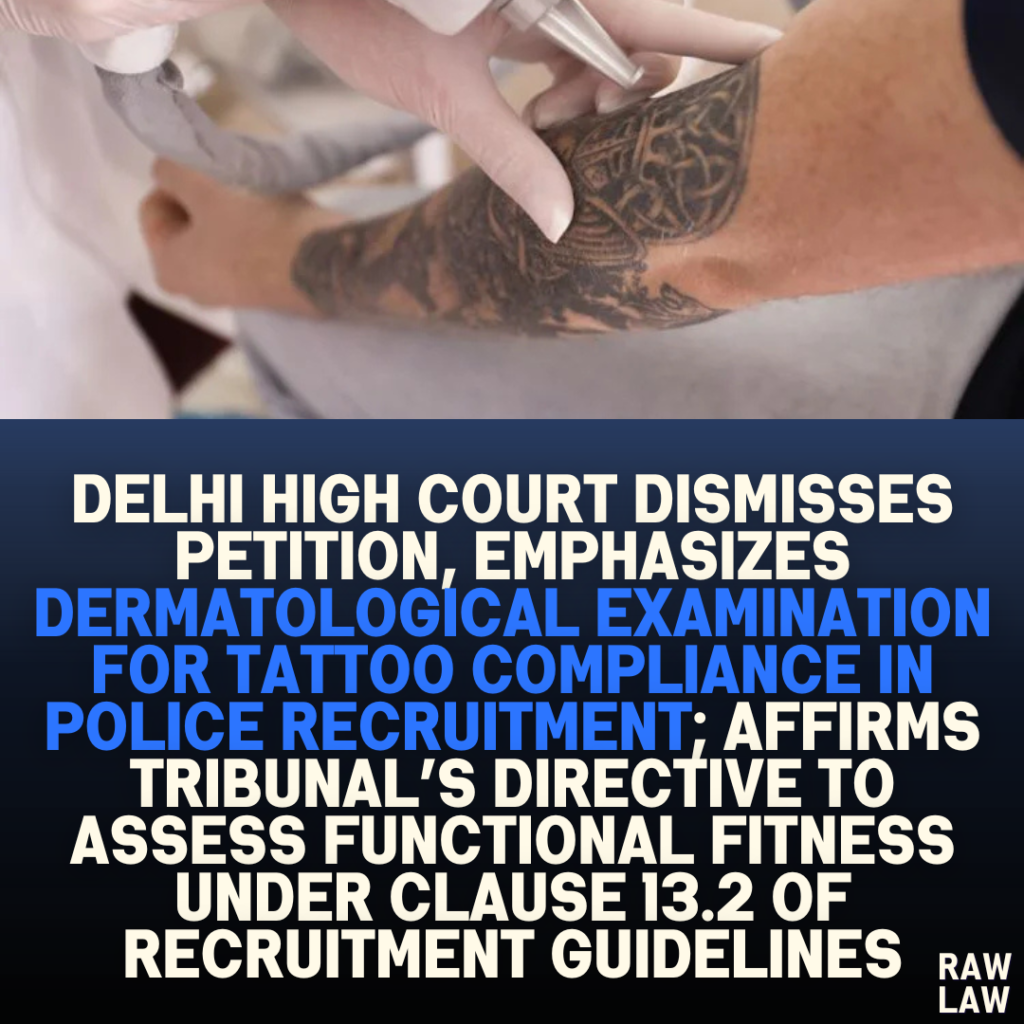Court’s Decision
The Delhi High Court upheld the Central Administrative Tribunal’s directive, which ordered a re-medical examination for a candidate applying to the Delhi Police. This examination by a dermatologist was to assess the candidate’s fitness for the position in light of Clause 13.2 of the recruitment advertisement, which prohibits tattoos on the right forearm for constable applicants.
Facts
The case concerned an aspirant for the Delhi Police Constable position who had been directed by the Tribunal to undergo a re-medical examination by a dermatologist. This assessment aimed to determine whether the candidate had any tattoo on the right forearm, in accordance with recruitment guidelines.
Issues
The main issue was whether the Tribunal’s directive for a re-medical examination by a dermatologist was justified, given that the recruitment criteria explicitly required the absence of any tattoo on the right forearm for applicants.
Petitioner’s Arguments
The petitioner challenged the Tribunal’s directive, although the court did not find substantial grounds to dispute the requirement for a dermatological assessment of the candidate’s compliance with Clause 13.2.
Respondent’s Arguments
The respondent argued that the Tribunal’s order was in line with the recruitment guidelines and sought only to ensure that candidates complied with Clause 13.2, a measure the respondent deemed necessary and appropriate.
Analysis of the Law
Clause 13.2 of the recruitment advertisement clearly disallows tattoos on the right forearm for candidates applying for the constable position in the Delhi Police. The court recognized that the dermatological examination serves as a practical approach to enforce this requirement without unduly impacting candidates’ rights.
Precedent Analysis
The court referenced its previous ruling in Staff Selection Commission v. Deepak Yadav, where a physical examination determined the absence of a visible tattoo on a candidate’s forearm. This precedent underscored the court’s approach to direct examinations to uphold recruitment standards.
Court’s Reasoning
The court reasoned that there was no valid reason to challenge the Tribunal’s directive for a dermatological examination, emphasizing the non-intrusive nature of this procedure. It noted that verifying the absence of a tattoo aligns with the essential eligibility criteria and recruitment integrity.
Conclusion
The court dismissed the petition, affirming that the Tribunal’s directive for a dermatologist to assess the candidate’s compliance with Clause 13.2 was appropriate. The court also highlighted that the dermatologist should consider the Deepak Yadav judgment, ensuring consistency in such assessments.
Implications
This judgment reinforces the enforceability of specific recruitment standards, such as the tattoo prohibition in police hiring, and supports procedural verification through specialist examinations to ensure adherence without overstepping candidates’ rights.
